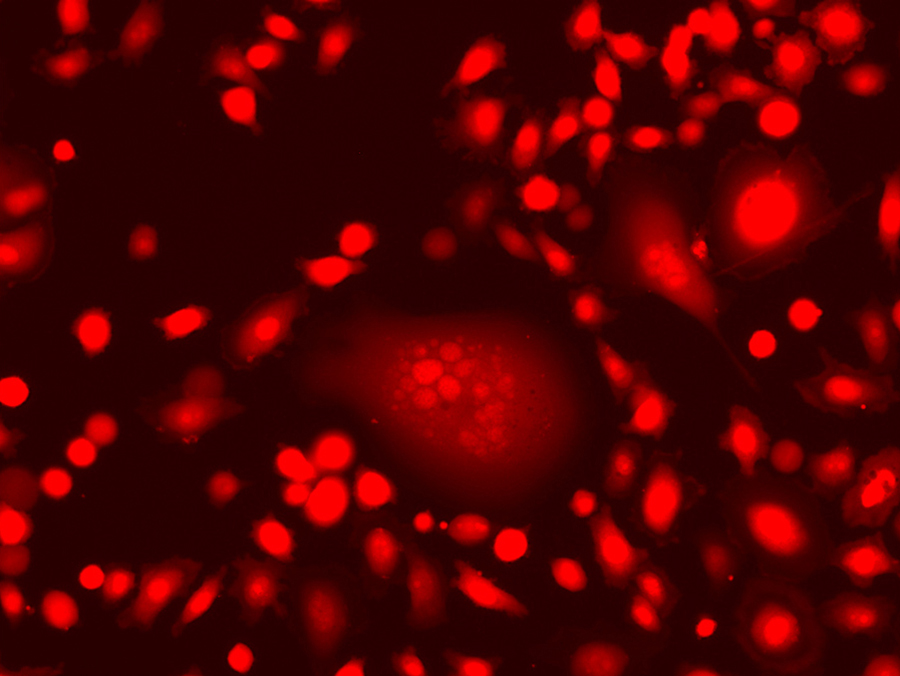Tag: tumour
Nanoparticles as Trojan horses: A safe and effective way to deliver oncolytic viruses to treat all cancers

Advanced cancer often comes with a lack of treatment options. Immunotherapies like cancer-killing viruses – oncolytic viruses (OVs) – are becoming increasingly popular but are currently limited by their inability to be administered into the blood. However, Dr Faith Howard and Dr Munitta Muthana, researchers at the University of Sheffield in the UK, demonstrate that OVs can be injected into […]
Breast Cancer Awareness Month 2022 – #GetScreened!

Breast Cancer Awareness Month 2022 raises awareness about one of the world’s most prevalent forms of cancer. Breast cancer usually starts in the lining cells of breast ducts, but in 15% of cases arises first in lobules in the glandular tissue of the breast. While initially harmless, Breast cancer is potentially dangerous due to the risk of metastasis, which is […]
Read More… from Breast Cancer Awareness Month 2022 – #GetScreened!
World Cancer Day 2022: Innovations in cancer research

Despite cancer being a leading cause of death worldwide, detecting cancers early enough to treat them remains a significant challenge. World Cancer Day, held annually on February 4, presents an opportunity to celebrate the advances that have been made, and to reflect on the work still to be done. This blog post brings together five Research Outreach articles that outline […]
Read More… from World Cancer Day 2022: Innovations in cancer research
Deeper insights into cell death and survival

The intricate balance between cell death and survival is essential for normal development and for preventing diseases such as cancer and autoimmunity. Ronald Jemmerson at the University of Minnesota contributed to the seminal discovery that cytochrome c (Cyt c) plays a key role in the onset of apoptosis (programmed cell death). His laboratory also established that leucine-rich alpha-2-glycoprotein-1 (LRG1) binds […]
Read More… from Deeper insights into cell death and survival
Novel cancer therapeutics could target ion channels

Although gynaecological cancers are amongst the most lethal cancers in women, treatments for the advanced stages of these cancers are scarce. Dr Saverio Gentile at the University of Illinois Cancer Center has been researching potassium ion channels as a potential target for novel cancer therapeutics. He has found that the use of potassium channel activators greatly reduced cell motility, tumour […]
Read More… from Novel cancer therapeutics could target ion channels
FLASH radiotherapy: What, how and why?

Ultra-high dose rate (FLASH) radiotherapy is a new way of treating tumours caused by cancer. Higher doses of radiotherapy are associated with trauma to the healthy tissue surrounding the tumour, whereas FLASH radiotherapy demonstrates a sparing effect of the healthy tissues without compromising the anti-tumour action. Dr Kristoffer Petersson at the Oxford Institute for Radiation Oncology, University of Oxford, along […]
Overcoming resistance to cancer immunotherapy

Immunotherapy, which uses the body’s own immune system to fight cancer, is a great step forward in cancer treatment. Unfortunately, however, it is currently ineffective in most patients. This resistance can be caused by a type of cell called a cancer-associated fibroblast, which builds protective defences around tumours. In a recent study, Professor Gareth Thomas and his team at the […]
Read More… from Overcoming resistance to cancer immunotherapy
Using nanoparticles for effective immune system modulation

The development of nanoparticles is increasingly becoming an essential strategy in drug delivery. Professor Aws Alshamsan from King Saud University, Saudi Arabia, is an expert in the field of nanobiotechnology and designs drug delivery systems made of small synthetic polymers to target specific tissues with high effectiveness. These particles are internalised by the immune system, along with the drugs that […]
Read More… from Using nanoparticles for effective immune system modulation
AMP-activated kinase as a therapeutic target in prostate cancer

Pharmacological treatment of prostate cancer has advanced significantly in recent years. However, while the newest therapies are initially effective in reducing tumour size, most patients eventually develop drug resistance and the recurrence of malignant spread. Professor Inés Díaz-Laviada and her team at the Alcala University in Madrid, Spain, have demonstrated that long-term treatments may induce the transformation of cancer cells […]
Read More… from AMP-activated kinase as a therapeutic target in prostate cancer
The adaptive cancer cell: How metastases evolve to resist treatment

Species adapt to survive in a changing environment through the process of evolution. Evolutionary processes can also take place at the cellular level. Dr Sarah Amend of Johns Hopkins University, Baltimore, USA, is investigating poly-aneuploid cancer cells (PACCs). These large, DNA-laden cells, which are more common in metastatic cancer, develop evolvability: the capacity to evolve. Dr Amend believes that targeting […]
Read More… from The adaptive cancer cell: How metastases evolve to resist treatment